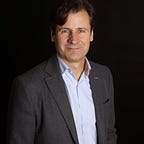Why do HR professionals say they feel burned out?
HR professionals say they suffer from very high levels of burnout in their jobs. It is what we have learned from a recent study carried out among professionals of this function in the United States and the United Kingdom by Workvivo, an employee experience app launched in 2017 that, after raising 16 million dollars in 2020, already has more than a million users around the world and clients of the stature of Amazon or Mercedes.
Among the more than 500 HR professionals surveyed, 98% say they have felt ‘burned out’ at their jobs in the last six months. More specifically, 97% have suffered emotional exhaustion, one of the three components (together with the development of negative attitudes and feelings towards their colleagues and the loss of confidence in their abilities to carry out their work and interact with others) of the so-called syndrome of burnout at work.
In addition, in a context where, on top of the challenges that are a direct consequence of the pandemic, HR professionals in many industries now face a shortage of workers and the so-called great resignation, it is revealing to learn that three out of four participants say they do not have the tools for carrying out their job effectively, half of them believe their organisation does not support the HR function, just 29% feel valued in their organisations, and 79% are “open” to leaving their jobs.
These are certainly worrying figures. However, when we compare them with some of the many data available about the levels of burnout experienced by one of the groups that have probably most directly and harshly suffered the consequences of the pandemic, as health professionals are, the differences surprise us.
For example, a study carried out in Italy among health professionals during the first wave of the pandemic (Lasalvia et al., 2021) revealed levels of emotional exhaustion among intensive care unit workers, nurses, and residents of 57%, 49.2%, and 34.9%, respectively.
Another reference is the large-scale study conducted between May 28 and October 1, 2020, among workers of 42 health care organisations in the United States (Prasad et al., 2021), according to which the 47.7% of doctors (50.5% of residents) had symptoms of burnout.
More recently, in April 2021, a Washington Post/Kaiser Family Foundation survey of 1,327 front-line health care workers in the United States (Kirzinger et al., 2021) reported that 55% of front-line health workers suffered from ‘burnout’.
These data also fit with the conclusion of a systematic review and meta-analysis published last year (Ghahramani et al., 2021) that shows an overall prevalence of burnout among healthcare workers of 52% [95% confidence interval, 40–63%], and a prevalence of emotional exhaustion of 51% [95% CI, 42–61%].
In summary, while studies conducted with health service professionals show an incidence of burnout syndrome and, more specifically, emotional exhaustion of around 50%, data from Workvivo suggest that the incidence could exceed 90% among HR professionals.
Waiting for new data to confirm the worrying landscape from the Workvivo survey (if you know of any other study, I would appreciate it if you could send it to me), I wonder what these differences could be due to.
Could it have to do with the methodology Workvivo used in its survey?
Could it be that, although it seems counterintuitive, HR professionals suffer higher levels of stress than health workers? Or are HR professionals less accustomed than health professionals to dealing with high levels of stress? Could it be that, since many of them are responsible for occupational health issues in their companies, HR professionals are more sensitive to these issues? Could it perhaps have to do with the different degrees of vocation HR professionals and health workers have for their respective jobs?
The topic is open to debate.
Léelo en español
References
Ghahramani, S., Lankarani, K. B., Yousefi, M., Heydari, K., Shahabi, S., & Azmand, S. (2021). A Systematic Review and Meta-Analysis of Burnout Among Healthcare Workers During COVID-19. Frontiers in psychiatry, 12.
Kirzinger, A., Kearney, A., Hamel, L., & Brodie, M. (2021). KFF/The Washington Post frontline health care workers survey. The Washington Post/KFF Survey Project.
Lasalvia, A., Amaddeo, F., Porru, S., Carta, A., Tardivo, S., Bovo, C., … & Bonetto, C. (2021). Levels of burn-out among healthcare workers during the COVID-19 pandemic and their associated factors: a cross-sectional study in a tertiary hospital of a highly burdened area of north-east Italy. BMJ open, 11(1), e045127.
Prasad, K., McLoughlin, C., Stillman, M., Poplau, S., Goelz, E., Taylor, S., … & Sinsky, C. A. (2021). Prevalence and correlates of stress and burnout among US healthcare workers during the COVID-19 pandemic: A national cross-sectional survey study. EClinicalMedicine, 35, 100879.
